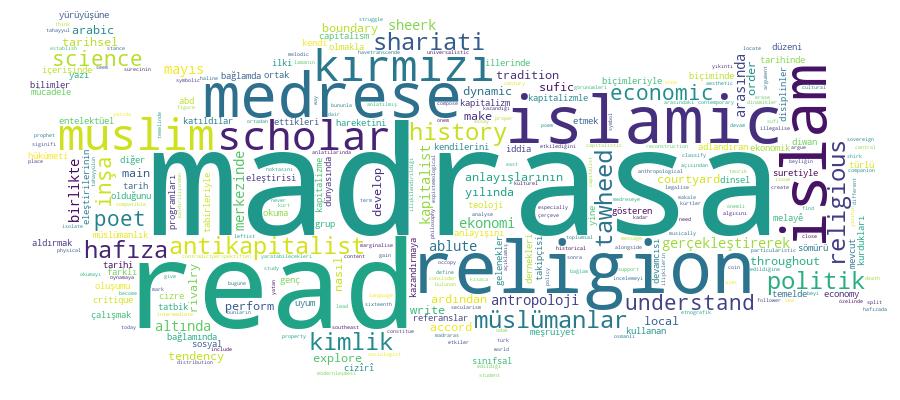Şengül, Serdar
Loading...

Profile URL
Name Variants
Serdar Şengül
Job Title
Dr. Öğr. Üyesi
Email Address
Main Affiliation
Department of Anthropology / Antropoloji Bölümü
Status
Former Staff
Website
ORCID ID
Scopus Author ID
Turkish CoHE Profile ID
Google Scholar ID
WoS Researcher ID
Sustainable Development Goals
17
PARTNERSHIPS FOR THE GOALS

1
Research Products
2
ZERO HUNGER

0
Research Products
5
GENDER EQUALITY

0
Research Products
6
CLEAN WATER AND SANITATION

0
Research Products
13
CLIMATE ACTION

0
Research Products
10
REDUCED INEQUALITIES

0
Research Products
16
PEACE, JUSTICE AND STRONG INSTITUTIONS

0
Research Products
8
DECENT WORK AND ECONOMIC GROWTH

0
Research Products
15
LIFE ON LAND

0
Research Products
3
GOOD HEALTH AND WELL-BEING

0
Research Products
9
INDUSTRY, INNOVATION AND INFRASTRUCTURE

0
Research Products
14
LIFE BELOW WATER

0
Research Products
4
QUALITY EDUCATION

0
Research Products
1
NO POVERTY

0
Research Products
7
AFFORDABLE AND CLEAN ENERGY

0
Research Products
11
SUSTAINABLE CITIES AND COMMUNITIES

0
Research Products
12
RESPONSIBLE CONSUMPTION AND PRODUCTION

0
Research Products

This researcher does not have a Scopus ID.

This researcher does not have a WoS ID.

Scholarly Output
4
Articles
4
Views / Downloads
56/148
Supervised MSc Theses
0
Supervised PhD Theses
0
WoS Citation Count
3
Scopus Citation Count
6
WoS h-index
1
Scopus h-index
1
Patents
0
Projects
0
WoS Citations per Publication
0.75
Scopus Citations per Publication
1.50
Open Access Source
0
Supervised Theses
0
Google Analytics Visitor Traffic
| Journal | Count |
|---|---|
| Folklor/Edebiyat | 1 |
| Kebikeç İnsan Bilimleri İçin Kaynak Araştırmaları Dergisi | 1 |
| Studies In Christian Ethics | 1 |
| Toplum ve Bilim | 1 |
Current Page: 1 / 1
Competency Cloud


